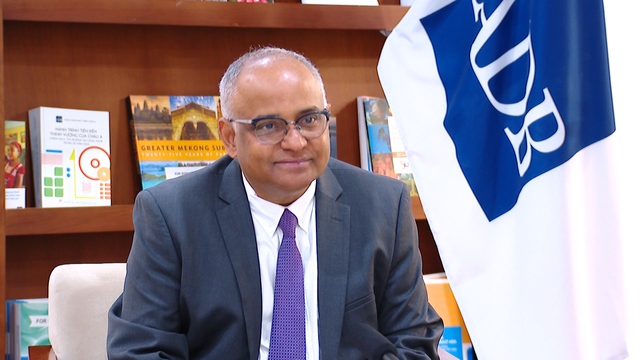Vietnam: The rise of ASEAN’s ‘Silicon Valley’
WHILE most countries in the ASEAN Economic Community (AEC) have ambitions of developing competitive tech sectors, it appears that Vietnam is best placed to become the region’s Silicon Valley, thanks to successful education policies, government support and an environment of entrepreneurial-ism.
Vietnam’s credentials as a country with strong Mathematics and Science education was acknowledged in 2012, when, participating in PISA (Programme for International Student Assessment) for the first time, the country’s 15-year-olds came 8th in science and 17th in mathematics.
These impressive results were further reinforced by the 2015 PISA rankings, with the country coming 8th in Science and 22nd in Mathematics, outperforming the U.S., Australia, and the U.K.
Andreas Schleicher, who coordinates the Organisation for Economic Co-operation and Development’s (OECD) PISA tests, attributes Vietnam’s success to forward-thinking government policies, a focused curriculum, investment in teachers and political commitment.

A smart class at a school in suburban Hanoi, Vietnam. Source: thi/Shutterstock
Vietnamese high school students now regularly outperform their peers from wealthy developed countries.
These achievements have been further verified by independent assessments of learning, which confirm that the country’s PISA rank does not simply reflect test-taking skills.
Findings from the Young Lives project conclude that Vietnam has high levels of student achievement, with 95 percent of Vietnamese 10-year-olds able to add four-digit numbers and 85 percent able to subtract fractions.
Vietnamese students’ achievements in Science, Technology, Engineering and Mathematics (STEM) have not only attracted the attention of researchers and education policy makers, but also international tech corporations searching for new talent.
SEE ALSO: Vietnam 2.0: Dynamic tech scene grabs global attention
A veteran software engineer from Alphabet Inc’s Google, Neil Fraser, recently visited local schools in Vietnam and spoke of the students’ tech skills. In an interview with Reuters, Fraser explained:
“Vietnam has the highest-performing computer science students I’ve ever encountered. The exercises I watched them solve… would be considered challenging problems for a Google hiring interview.”

A young student plays with her smartphone. Source: Shutterstock
Google’s chief executive, Sundar Pichai, was also in Vietnam last year, meeting with Vietnamese Prime Minister Nguyen Tan Dung to discuss future developments.
After the meeting, Pichai pledged Vietnam would soon become one of Google’s most important markets, explaining, “It will easily be in the top 10 countries for many companies and people who are building products.”
As part of Google’s commitment to further develop expertise in Vietnam’s fledgling tech sector, the Californian tech-giant will soon be training 1,400 local IT engineers.
Vietnam is also benefiting from funding and government policies designed to support the country to become a regional hub for technology and innovation.
An example of this is the ambitious Silicon Valley Project, a plan sponsored by the Science and Technology Ministry which aims to transform the country into a major player in the digital economy.
The project is working to attract the necessary entrepreneurs, expertise and investment to enable the development of a competitive technology sector.
Vietnam’s appeal is bolstered by its tech-savvy workforce, which is cheaper than China’s and more productive that other countries in the AEC.
Initially, Vietnam had emerged as a production center for Korean and Japanese electronics manufactures such as Samsung, LG Electronics, Panasonic and Toshiba, firms which have had factories in Vietnam for decades.
But the focus is now on transitioning from being a top producer of electronic components to becoming a center for research, innovation and development.

Front view of a mobile phone store of FPT Corp in Hanoi. FPT is Vietnam’s largest tech and telco company. Source: Hanoi Photography/Shutterstock
If Vietnam’s plans become a reality, there is every reason to believe that more Vietnamese entrepreneurs will be following in the footsteps of Hanoi developer Dong Nguyen who in 2014 developed Flappy Bird, a smartphone game that went viral, topped the Apple and Android app charts and was rumoured to have made over US$50,000 a day.
To everyone’s surprise Nguyen pulled Flappy Birds from the Apple and Android app stores become he felt the game had become too addictive. Nguyen has gone on to develop numerous other games which have all been popular.
Silicon Valley-based venture capitalist 500 Startups is confident Vietnam has plenty more talent like Dong Nguyen and recently announced a US$10 million Vietnam-focused fund to invest over a 12-month period.
However, as 500 Startups partner Eddie Thai explains, they may have underestimated the country’s potential, “it quickly became clear, there’s a lot more good companies to invest in.”
With a successful education system, supportive government policies, foreign investment and a tech-savvy generation determined to reap the financial rewards of the global tech industry, Vietnam is in an excellent position to dominate the region’s tech industry for years to come.
source: asiancorrespondent.com
More Articles
- • FPT Software to open the second F-Ville at HHTP
- • New policies take effect in February 2017
- • FDI registration fetches over US$ 1.4 billion
- • News in Photos: Investment Conference 2016
- • Hoa Lac Hi-Tech Park: Ready to be an appealing investment spot
- • FDI registration touches over US$ 18 billion
- • FDI attraction hits over US$16 bln in nine months
- • Three national high-tech parks collaborate to promote business integrity to improve investment environment
- • ASPA is granted Special Consultative Status with the United Nations
- • VN heads to startup nation


